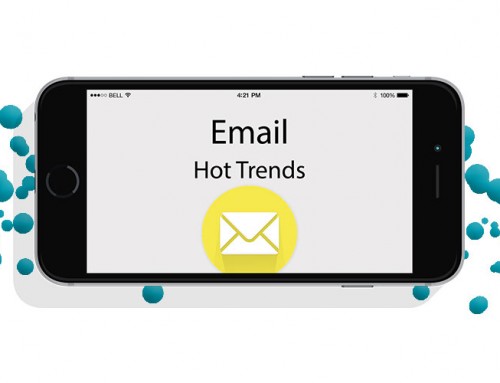Explanations of both and 7 questions to help you choose the right one.
Email marketing. Marketing automation. PoTAYto. PoTAHto. Geez, Louise. Aren’t they the same? They both use email and both have the same goal of keeping the love flowing between you and your customers and prospects, right?
Yes, young marketing Jedi. But they have different functions in the sales cycle and are best for different types of users and goals. Here’s the scoop to help unpack the two and shed some light on which could be best for your needs.
Let’s start with some definitions:
Email marketing
It’s a one-channel, one-way communication to your customers or prospects. You compile your list from numerous sources (current or past customers, website entries, affiliate data, etc.), craft a swanky email on swanky software, and send it to everyone on your list. Creating segments for different messages and creating the different messages are usually done manually. You can also link the message to social media for additional reach and umph. After each email campaign, you can gauge recipient engagement: who opened the message, which link(s) they clicked and when. It totally rocks for companies that market to the masses and have a fairly homogeneous customer/prospect base and product offering. The goal is usually direct conversion to a sale — not the type of sale that needs a salesperson to seal the deal. Email marketing is also boss for general information distribution and branding, and it’s deliciously flexible and inexpensive.
Marketing automation
It’s email marketing on steroids. It corrals all customer touchpoints and synchronizes all electronic communication methods to nurture prospects all the way to (typically) a salesperson who will ultimately close the sale. It pulls together into one tidy package all functions of email marketing, PLUS:
- automated email messages triggered by customer/prospect behavior. For example, if someone registers for information on your website, they’re rewarded with an email containing a complementary whitepaper. (Hey, don’t knock it. You’re reading this whitepaper, right?)
- customer relationship management (CRM) integration
- tracking of web behavior
- lead scoring, which is prioritizing leads based on a slew of data
- behavior-based segmentation
- multi-channel campaign coordination
- sometimes: content generation platforms and search engine optimization
The goal is often to deliver ready-to-pull-the-trigger leads to your sales team. With all these features, marketing automation is more expensive than email marketing, more complicated (initially), requires a longer build time, and needs loads of content for the loads of customized, targeted messages you’ll distribute. But, once it’s built, it can be a machine for supreme glory.
For example, Salesforce offers both email marketing and email automation products. They have Salesforce Marketing Cloud (formerly ExactTarget) for email marketing and Salesforce Pardot for marketing automation.

What’s flavor of marketing tool is right for you?
Here’s a 7 question survey to help you start the journey to the best fit:
- Your customer base is
- pretty much the same
- wildly different or complex
- Your products are
- pretty much the same
- wildly different or complex
- Your sales cycle is
- Short
- Long
- The content you need to deliver
- can be similar for all
- needs to be mega-targeted and uber-customized
- Your leads
- can be converted to a sale through email only
- need to be qualified and nurtured until a salesperson can take over and convert them
- Your marketing measurement desires
- are simple, such as email opens and click-throughs for individual email campaigns
- are a tad complex, with the desire to track results across multiple communications channels and ultimately tie them back to revenue
- Your budget is
- petite
- robust
If you answered “a” for most of these questions, you’re probably good to go with email marketing. If you answered “b” most of the time, you may want to consider marketing automation. However — BIG DISCLOSURE HERE — this questionnaire just scratches the proverbial surface and is in no way is complete and full marketing council. It’s just a list of questions to get you thinking.











Leave A Comment